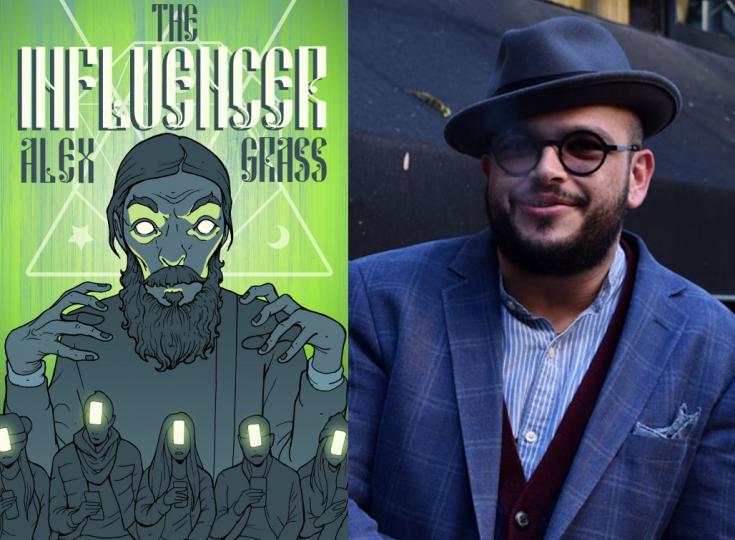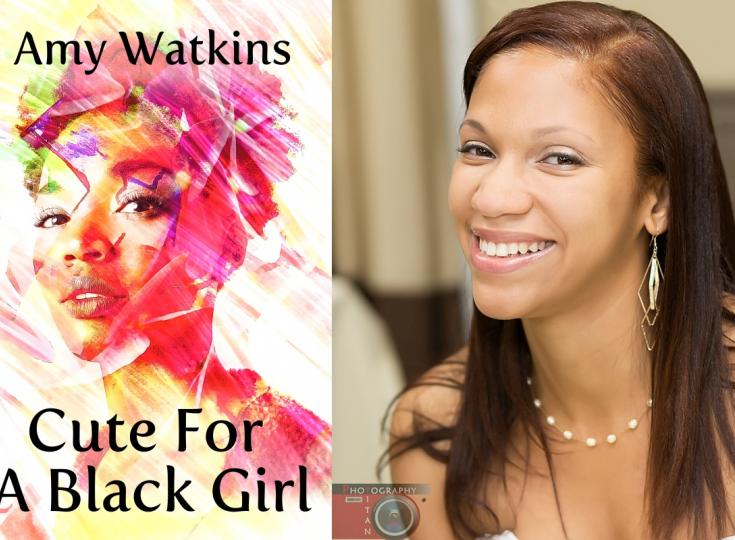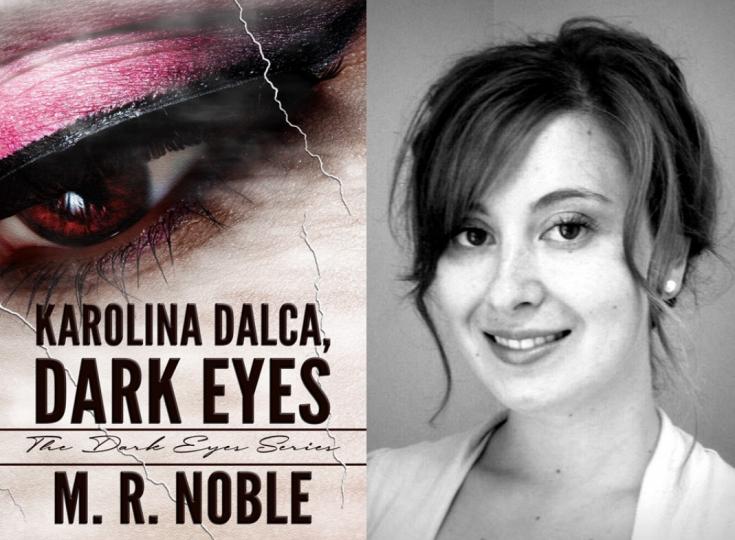Noel Zamot - Action, Scientific Intrigue, Romantic Suspense, and Psychological Tension in a Genre-Defying Thrill Ride
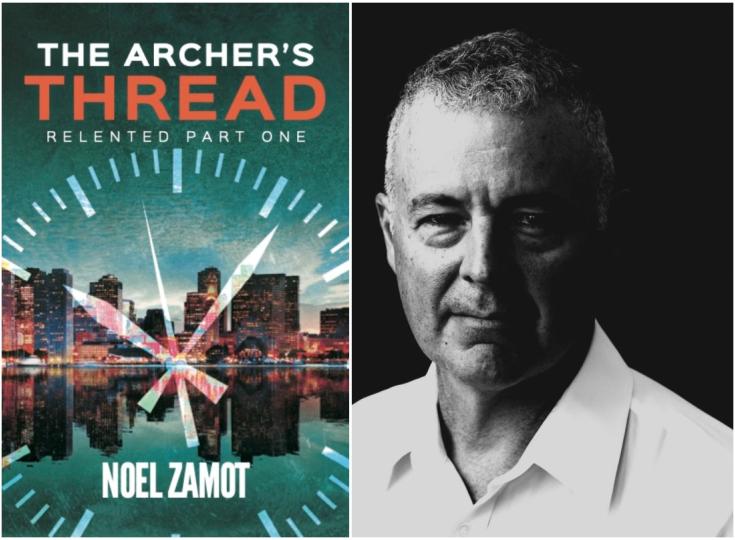
After flying in combat, twice testifying before Congress, and barely escaping arrest after exposing government corruption, Noel Zamot decided to finish his debut novel. Personal experiences in cyberwarfare, space operations and covert programs underpin his debut thriller “The Archer’s Thread,” available everywhere. Before flying supersonic and stealth jets he studied engineering at MIT, but enjoyed writing classes under Joe Haldeman (winner of the Hugo Award and author of “The Forever War”) the most. He’s a mountain biker, sailplane pilot, coffee roaster, and writer. Noel is currently writing “The Feather’s Push,” volume two in the Relented series, and doing several things he can’t talk about. He insists that "Absolutely nothing in his books is based on personal experience". As our Author of the Day, he tells us all about The Archer's Thread.
Please give us a short introduction to what The Archer's Thread is about.
“The Archer’s Thread” is a speculative fiction thriller set in present-day Boston. It tells the story of Simon Lyons, a man who can see ten seconds into the future. Simon's condition is useful to some, but drives him insane. A book from his past leads him to a young university professor with a surprising gift: around Kelly Austin, Simon cannot see ahead. The chaos of future timelines is replaced by a quiet, comforting calm. Searching for peace he enters Kelly's life, planning to find a cure, then leave. That’s when someone from his past returns, determined to keep his history buried. When they discover Kelly may be the key to his condition, Simon has to choose: a horrifying past, or the terror of redemption.
What inspired you to write this story? Was there anything that made you want to tackle this?
At a family dinner several years ago, we asked each other “what superpower do you wish you had?” After the typical “I want to fly/be invisible/be super strong” we settled on abilities which could be somewhat realistic, with extra points for explaining the science (we have interesting dinner conversations). I thought that someone who could see a few seconds into the future would be the most dangerous person alive. But what if this person was highly imperfect? What if that skill drove them insane?
Then, during a time that I explain in the afterword to the book, I rediscovered a book on mathematics. It led me to a vibrant, fascinating community online. Of course, I wondered: what if these worlds collided? And there you have it.
Tell us more about Simon Lyons. What makes him special?
When we first meet Simon, he’s a mess. He has sadistically mangled two petty criminals, only to walk away and throw up in shame and disgust. A few scenes later we get a very blunt description of how he intends to end his life. Then we learn of his past—a passion for literature, science and mystery, and deep hatred for someone he used to love. And we discover that some people are working very hard to find him, at the expense of everything else.
What makes him special? He acts on all the terrible thoughts we have in mind, is horrified by them, and does them anyway. He is angry and frustrated and violent and dismissive. When he falls in love, he has no idea he’s doing so. Yet there are good people who would follow him into hell, who would risk anything to see him again. Why? I think we’ve all felt that way: alone yet loved, angry yet forgiven. And we wonder: who would come for us? Why?
Oh, by the way: he can see a handful of seconds into the future. Since he can anticipate any attack, he is almost impossible to hurt. He knows where anything will land, so he cannot miss. He knows what happens next, so he becomes filthy rich. He can anticipate what you’ll do, how you’ll react, therefore his life is an endless re-run. So he is also going insane.
You have personal experiences in cyberwarfare, air and space operations, and classified military programs. How has this influenced your writing?
Attention to specific details which I hope make for a believable story, and a terrifying context. There are several easter eggs in the novel that some of my former colleagues will laugh about, but which will remain absolutely transparent to others. That was highly intentional.
I also try to include some of the mundane, but ultimately deadly serious aspects of the worlds I lived in. How do you leave a country you have no record of entering? How do intelligence services cooperate with law enforcement? How do people hide from satellite surveillance? Perhaps most disturbing: how imperfect are the people who run invisible, yet enormously important global operations which no one knows about?
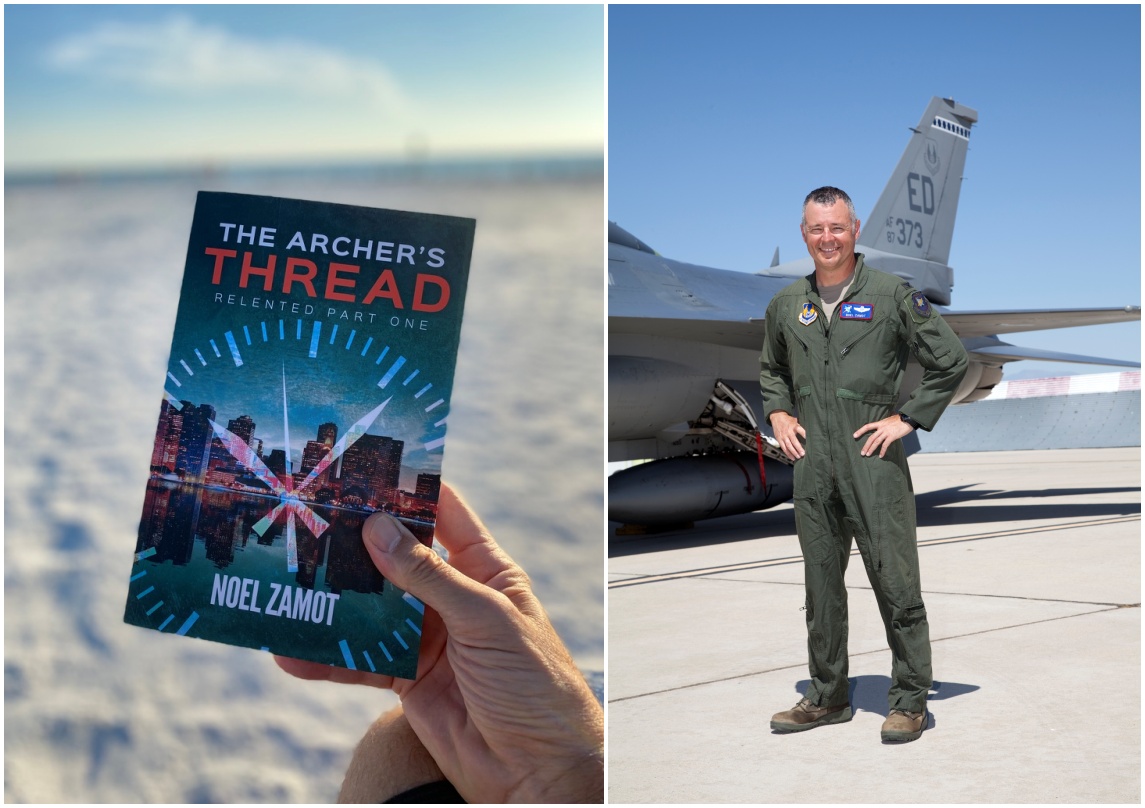
Besides writing, what other secret skills do you have?
If I told you, I’d have to kill you. But in all honesty, the answer is none. Years ago, we protected many amazing capabilities which are easily accessible today. For example, the level of artificial intelligence available FOR FREE to the average computer user is simply astounding. It is also a large part of Book 2. I am certain, however, there are wonderful tools out there that good men and women use to keep the balance of sanity of our world intact. What keeps me up at night is this: there are equally bad people using similar or worse capabilities merely because they want to see the world burn. Most people live blissfully ignorant lives, unaware of the razor’s edge we walk every day.
Readers describe this as a genre-bending thriller. Was this intentional?
Absolutely intentional. I wanted a thriller that included elements of science, romance, and cutting edge commentary. I find those books fascinating. One reader mentioned the reason she REALLY liked the novel—although she hates thrillers—was because the main redemptive arc is a touching, credible love story. Another reader mentioned she hates math but loved the descriptions of it in the book. Another one told me he thought the book was the intersection of Lee Child and Anthony Doerr: “[. . .] what would happen if Jack Reacher was the protagonist in ‘About Grace.’” He let me use that for a quote!
Why did you decide to include some romance in the story?
Because it was the most believable, compelling and engaging way to show how Simon, the main character, transforms and achieves redemption. In many ways, we are defined not by what we do, but by who and why we love. I wanted people to look at Simon and be horrified about his ruthless and violent side, tickled by his cluelessness when falling in love, and touched by what he is willing to sacrifice for someone he was unprepared to meet. I thoroughly enjoyed writing the interactions between love interests from both sides. Note: The romantic scenes are not NC-17 bodice-rippers—they’re mostly “fade to black” (PG-13) with a handful beyond that, and all are essential to the story.
What was the most challenging aspect of writing The Archer's Thread?
Staying focused on the plot! I wanted to include several topics I found fascinating—Mathematics, Literature, Artificial Intelligence, Washington DC politics, realistic operations—and do so in a manner that was believable and engaging, not a typical shooting-gallery-filled-with-violence story. I also had to include the framework for the overarching arc behind the three books. Weaving the narrative threads (pun intended) while dropping seemingly innocuous clues and ensuring the story was consistent across three books was a challenge. I loved every second of it.
Readers say that the book is fast-paced and would do great as a Hollywood movie - how did you pull this off?
I was pleasantly surprised to read those reviews. I try to keep chapters balanced in length: choppy, action based scenes interleaved with slower, descriptive exposition and dialogue. I focus on the “why?” of each chapter, and try to finish with something to keep the pot boiling. I also think visually, and believe that transfers to my writing. So the scenes turn out to be easily visualized.
There is a scene in the book where Simon demonstrates his skill to an important character. He starts off by asking about seemingly unconnected topics, and finishes with a question that ties them together. That scene is written from his counterpart’s point of view, so you hear her thoughts as she wonders where this meandering discussion is going. The next scene is told from Simon’s point of view, as he demonstrates—with coins and dice at a bar—what he can do. The demonstration is shocking to the character. It was enormously fun to write, but I thought of it merely as a way to show his desire to be “normal.” A beta reader called me up after reaching that part in the novel. I’ll never forget his call: “Do you want to be famous? That is the coolest thing I’ve ever read and it would make a hell of a TV show.” I was pleasantly stunned.
The story contains some twists and turns. Did you plan it all out before you started writing, or did some of it just "happen" along the way?
I believe Stephen King said that his books are merely writing the stories of interesting people put into strange situations. I would have to agree. I discovered several of the twists by thinking about—and thoroughly developing—what my characters would do in adversity. When you develop several of these responses through the book, what seems a carefully planned plot twist really materializes from the inevitable reaction by a character with a believable struggle. One example is Kelly’s mother. Without giving too much away, her loss (Spoiler Alert: it will become quite important in Book 2. . .) provided a perfect weakness for an adversary to exploit. Combined with a grieving father, a frustrated and desperate antagonist, and today’s technology. . . what seems to the reader a clever twist is really the only reasonable outcome.
When starting on a new book, what is the first thing you do?
I spend far too much time thinking about my characters before page one. I like to write scenes where I explore them before figuring out the full plot. So in a sense, the characters predate the book. For the novel itself, I like starting with a scene that has barely enough exposition, and shows just enough of the character’s actions to leave a reader thinking “What the hell was THAT?” The first scene in Book 2, “The Feather’s Push,” is told through the eyes of a “victim.” In the span of less than a thousand words, you know there is something very, very wrong with someone who, one scene later, you realize is the protagonist. An early beta reader wrote back after she read the first third of the novel (which ends in a brutal cliffhanger) to tell me “I can’t believe you did that to me. Where is Part Two?” It is one of the nicest compliments I’ve ever received.
Do you have any interesting writing habits? What is an average writing day like for you?
My only interesting writing habit is that I have to listen to 80’s alternatives when writing fast-paced scenes. Strangely enough, it is also the playlist I listen to when raging down trails on my mountain bike. A typical day involves a desperate desire to write, punctuated by the dozen interruptions of professional life. I wish I had more time for “deep work,” where I can turn life off and escape to the world I’m discovering. A lot of my good writing happens with an Old Fashioned in hand, feet up on the couch, airplane mode on laptop and phone, and suddenly three hours go by and I have no clue what time, day or month it might be. I live for those moments.
What are you working on right now?
I am two-thirds complete on the first draft of Book Two, “The Feather’s Push.” “Feather” is about Amber Drake, a young woman on the spectrum who cannot sense emotion by sight — only by touch. One day, she almost kills someone because of unexpected changes within her. She initially tries to hide this new terror, then learns to control, and finally wield it. One day, someone finds out who she really is—and tries to discover where she came from. When her life and past suddenly crumble, she is forced to trust the man who tried to kill her, in order to protect those she loves. Spoiler alert: All of the characters in “Archer” are key to this book. In Book Three we will meet another highly imperfect, strangely gifted person, and understand the past all three share.
Where can our readers discover more of your work or interact with you?
Follow me at www.noelzamot.com. I’m @noel_zamot on Instagram and Twitter, and @NoelZamotAuthor on Facebook. I’ve been told I should join TikTok, but you really don’t want to see me dancing. Then I’d REALLY have to kill you.
If you want to see how you can create faces of people who do not exist, or see what Simon and Kelly look like, check out the “Characters” tab on my website, www.noelzamot.com.
